I recently reread The Wheel of Time. I never finished that series, and it’s unlikely that I will, since my interest vanished into the ether after reading the quite poor extended prologue involving Moiraine, Lan, and her fisherman’s daughter friend whose name I’ve forgotten. While I liked the young cast, especially because of how traditionalist they were, I could see far too many fantasy tropes that really annoyed me, and it gave me the same Young Adult vibes that Brandon Sanderson’s writing gives me. I guess at least they found the right choice to finish the series after Robert Jordan’s unfortunate passing.
Personally I have plans for my own creative writing, and some (bad) rough drafts are already present on this site, viewable only by me. Unlike most fantasy authors, I only care about fantasy in so far as I can slip in the right messaging, so don’t expect any orcs or elves or any of that stuff. I don’t care about deconstructing fantasy tropes, I care about affecting the political consciousness of the reader.
That’s not to say that the zionist controlled soyboys who make up the majority of the fantasy genre, outright fascists Robert E. Howard and HP Lovecraft excluded, are opposed to putting their shitty, reality denying politics into their works. I find most fantasy unreadable, but I very much appreciated Joe Abercrombie’s work, flawed though it is.
That’s why I got pissed off when he made a major characters partial downfall be the result of his natural disgust reaction at faggotry. That, combined with a steady erosion in the believability of the world he had created, mostly for apolitical reasons such as the complete lack of attention to logistics detail, the magic wielders being so powerful that the actions of everyone else are pointless, or the major villain suddenly being a passive idiot, lead me to quit on the series.
But leaving the politics aside, since I’m trying to study these works only in order to improve my own, the more flawed the works, the better. Wheel of Time has a lot going for it, but even the annoyances I had were useful in clarifying my thoughts as to what I absolutely must avoid in my own works. The same is true for Abercrombie’s Age of Madness. But if we’re looking for a flawed, but quality work, we need look no further than Steven Erikson’s Malazan series.
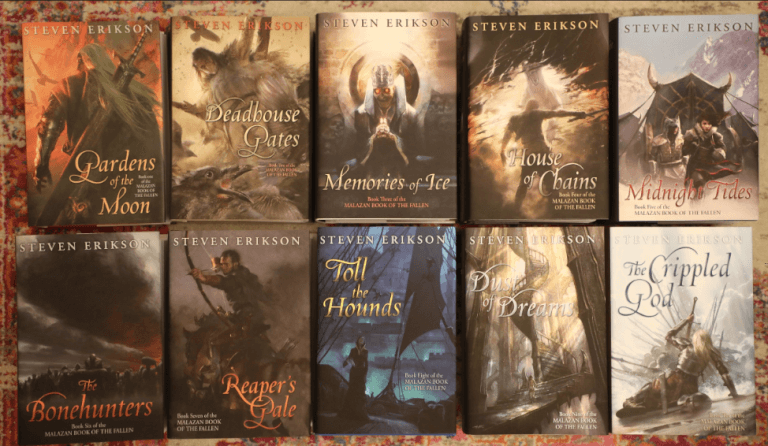
Or at least that’s what everyone told me online. I had a sneaking suspicion that I would hate the series, but I made sure to keep an open mind, and got a free sample from Amazon. Here’s the very first paragraph of the very first book, Gardens of the Moon.
1154th Year of Burn’s Sleep
96th Year of the Malazan Empire
The Last Year of Emperor Kellanved’s ReignThe stains of rust seemed to map blood seas on the black, pocked surface of Mock’s Vane. A century old, it squatted on the point of an old pike that had been bolted to the outer top of the Hold’s wall. Monstrous and misshapen, it had been cold-hammered into the form of a winged demon, teeth bared in a leering grin, and was tugged and buffeted in squealing protest with every gust of wind.
I’m already lost. Who is Mock? What is his Vane, and why is it capitalized?

Initially I thought that I had accidentally received a sample for some random book in the middle of the series. I don’t know what the “Hold” is, and I don’t know what “Mock’s Vane,” is either. I don’t know who Mock is, and by the end of the first paragraph, on my first read through, I thought that the Mock’s Vane thingy was a statue. Then, on my second read, I saw it getting buffeted in the wind, and I thought maybe it was some sort of flag-like thing? Only after looking up “Mock’s Vane,” did I realize he meant a weather vane, and that Mock isn’t a person. Even still, he needlessly capitalized the V, I guess to throw off us plebs.

I was expecting a book that threw a lot of stuff at the reader and demanded they remember. I wasn’t expecting a book that confused me from the very first paragraph.
The winds were contrary the day columns of smoke rose over the Mouse Quarter of Malaz City. The Vane’s silence –
Stop, this is the next paragraph and I’m already lost again. Did that sentence not get edited properly? It doesn’t appear to make any sense at all. Seriously, try working out what he’s even trying to say there. What the fuck is a “day column of smoke,” anyway, and how can the wind be “contrary,” to it?

I remind you that this is the second paragraph.
The Vane’s silence announced the sudden falling-off of the sea breeze that came clambering over the ragged walls of Mock’s Hold, then it creaked back into life as the hot, spark-scattered and smoke-filled breath of the Mouse Quarter reached across the city to sweep the promontory’s heights.
Smoke filled breath of the Mouse Quarter? I take it this means that a section of the city is on fire. I still don’t know why he keeps capitalizing the V in vane, but I do think that I understand this paragraph. Most stories don’t have this problem, but okay.
Ganoes Stabro Paran of the House of Paran stood on tiptoe to see over the merlon. Behind him rose Mock’s Hold, once capital of the Empire but now, since the mainland had been conquered, relegated once more to a Fist’s holding. To his left rose the pike and its wayward trophy.
For Ganoes, the ancient fortification overlooking the city was too familiar to be of interest. This visit was his third in as many years; he’d long ago explored the courtyard with its heaved cobblestones, the Old Keep—now a stable, its upper floor home to pigeons and swallows and bats—and the citadel where even now his father negotiated the island export tithe with the harbor officials. In the last instance, of course, a goodly portion was out of bounds, even for a son of a noble house; for it was in the citadel that the Fist had his residence, and in the inner chambers that such affairs of the Empire as concerned this island were conducted.
Oh for fuck sakes this writing is just abysmal. There was no reason to write “a Fist’s holding,” instead of “one of Fist’s holdings,” in the first of the two above paragraphs. The only reason to write it the other way is to fuck with the readers, and poorly create a sense of mystery around who or what “Fist,” means/is. Is Fist a country? Is Fist a magical entity? Is Fist a legal term? Only in the second paragraph do we learn the truth that Fist is a guy.

This might come as something of a spoiler, but I can’t see myself continuing with this series, or even this book. Hell, finishing the opening chapter appears to be a chore, although we’re not quite done with this yet. I’m starting to fear that this is a microcosm of the entire Malazan-verse, where things are needlessly obfuscated only to be explained later on, thus making midwits feel really smart for finally getting it.
Mock’s Hold forgotten behind him, Ganoes’ attention was on the tattered city below, and the riots that ran through the Mouse, its poorest quarter. Mock’s Hold stood atop a cliff. The higher land of the Pinnacle was reached by a switch-back staircase carved into the limestone of the cliff wall. The drop to the city below was eighty armspans or more, with the Hold’s battered wall adding still another six. The Mouse was at the city’s inland edge, an uneven spreading of hovels and overgrown tiers cut in half by the silt-heavy river that crawled toward the harbor. With most of Malaz City between Ganoes’ position and the riots, it was hard to make out any detail, beyond the growing pillars of black smoke.
It was midday, but the flash and thundering concussion of magery made the air seem dark and heavy.
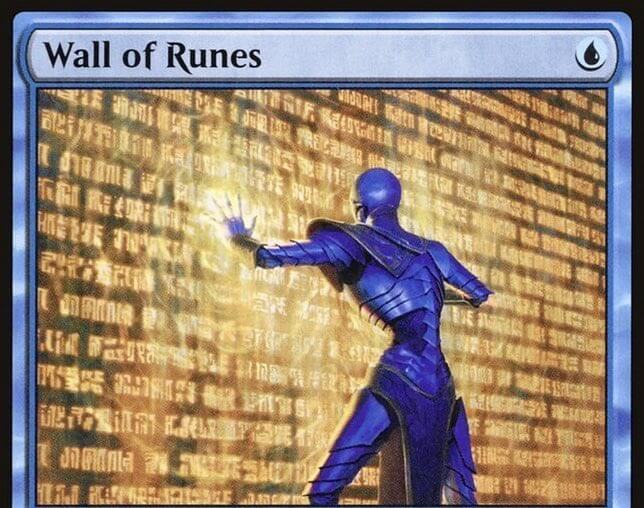
I’m also starting to think this book was written to piss me off. We start off with needless obfuscation and Proper Noun dropping everywhere. Then we get a wall of text that Tell Then Show’s us. Take the Mouse Quarter for example. Erikson tells us that it’s poor. Then, in the same paragraph, he describes it as an uneven spreading of hovels and overgrown tiers. I guess we’re supposed to logically deduce that… it’s poor.
Normally I wouldn’t complain, but we just got done with the opening that takes a Figure It Out Faggot approach to explaining what’s going on, because Erikson’s purple prose about the Mouse Quarter breathing “day columns of smoke,” or what have you just can’t be muddied up with something so base and demeaning as basic context. Then we transition to Erikson saying “yeah, this area’s real poor. Anyway I’m on a cliff, oh it’s about 300 feet high. Here are the engineering blueprints in case you need to trek up here. There’s some stairs over here.”
I’m not necessarily complaining about the latter style. A more workman’s approach is fine, it’s just that it’s giving me tonal whiplash.
Armor clanking, a soldier appeared along the wall near him. The man leaned vambraced forearms on the battlement, the scabbard of his longsword scraping against the stones. “Glad for your pure blood, eh?” he asked, gray eyes on the smoldering city below.
The boy studied the soldier. He already knew the complete regimental accoutrements of the Imperial Army, and the man at his side was a commander in the Third—one of the Emperor’s own, an élite. On his dark gray shoulder-cloak was a silver brooch: a bridge of stone, lit by ruby flames. A Bridgeburner.
High-ranking soldiers and officials of the Empire commonly passed through Mock’s Hold. The island of Malaz remained a vital port of call, especially now that the Korel wars to the south had begun. Ganoes had brushed shoulders with more than his share, here and in the capital, Unta.
Fuck me he’s doing it again.
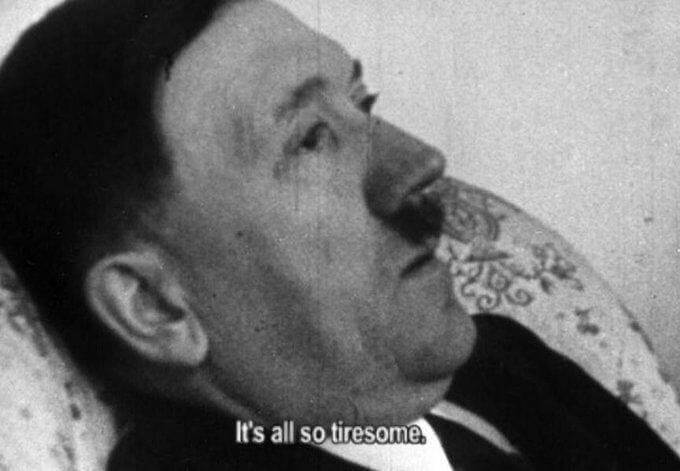
All of this could be explained in dialogue scene that we’re about to get, and the precise nature and role of a soldier is exactly the thing that you should be leaving mysterious. I don’t need it explained to me that this guy is some hotshot, that should be shown to me. I do need it explained to me at the start of the story the basics of what’s going on.
“Is it true, then?” Ganoes asked boldly.
“Is what true?”
“The First Sword of Empire. Dassem Ultor. We heard in the capital before we left. He’s dead. Is it true? Is Dassem dead?”
The man seemed to flinch, his gaze unwavering on the Mouse. “Such is war,” he muttered, under his breath, as if the words were not meant for anyone else’s ears.
“You’re with the Third. I thought the Third was with him, in Seven Cities. At Y’ghatan—”
WHY THE FUCK ARE YOU RE-ESTABLISHING IN DIALOGUE WHAT YOU ALREADY EXPLAINED IN NARRATION????

I’m trying not to interject too much. I don’t want to interrupt the dialogue flow and make it seem worse than it is, but the weird emphasis on unimportant details when I still barely know what’s going on, or who these two guys are is extremely annoying.
“Hood’s Breath, they’re still looking for his body in the still-hot rubble of that damned city, and here you are, a merchant’s son three thousand leagues from Seven Cities with information only a few are supposed to possess.” He still did not turn. “I know not your sources, but take my advice and keep what you know to yourself.”
Ganoes shrugged. “It’s said he betrayed a god.”
Finally the man faced him. His face was scarred, and something that might have been a burn marred his jaw and left cheek. For all that, he looked young for a commander. “Heed the lesson there, son.”
“What lesson?”
“Every decision you make can change the world. The best life is the one the gods don’t notice. You want to live free, boy, live quietly.”
“I want to be a soldier. A hero.”
“You’ll grow out of it.”
D-did we see some competent dialogue writing that somewhat explains who these people and what’s going on in a natural way? You know what, I think we did.

Good on ya Steven, I knew you had it in you. It’s not exactly the greatest thing I’ve ever seen, but by god, it’s better than everything else thus far. Who knows, maybe if he sticks to this style of writing, where by style I mean just explaining what the audience needs to know, I might finish up this chapter.
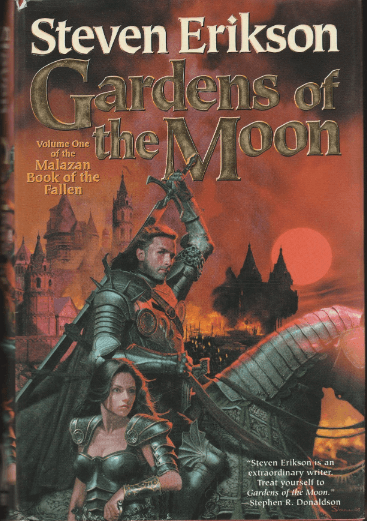
Mock’s Vane squealed as a wayward gust from the harbor cleared the grainy smoke. Ganoes could now smell rotting fish and the waterfront’s stink of humanity.
Another Bridgeburner, this one with a broken, scorched fiddle strapped to his back, came up to the commander. He was wiry and if anything younger—only a few years older than Ganoes himself, who was twelve.

I’m already somewhat ranted out, but why didn’t we lead with this? I wasted time trying to figure out who Ganoes was, imagining him as much older, only to have him revealed as a twelve year old. It’s annoying when I’m not given a reasonable mental picture of a character and how they fit into the world. Ganoes being a child changes my opinion of what Mock’s Hold is, although I think I may have misread that, and he’s not actually around Mock’s Hold. I don’t know, and I very much do not care.
This writing is so vague, and then occasionally over-descriptive that it almost seems experimental. It’s not that there aren’t interesting things happening, and it’s not that the characters aren’t potentially interesting. It’s that I, the reader, have not been given enough information to figure out what’s happening, or who the characters are. I mean we’ve got some noble’s son with dreams of joining the military and information he possibly shouldn’t have about some other guys death watching a fiery, but distant riot right next to some elite king’s bodyguard types. This should have been a lot more interesting than it was, but Erikson’s head was shoved all the way up his ass, so instead of gradually introducing the proper nouns to us, he simply vomits all over the page. For some reason this style of writing has its defenders.
I’m going to spend five minutes re-writing the start of this books in a way that’s less offensive to me, but keeps all the characters and plot points the same.
Ganoes Stabro Paran of the Minor House of Paran stood on tiptoe to enable his twelve year old eyes to see over the wall of Mock’s Hold. Rocking back down on his heels, he cast his eyes about, more interested in the two dangerous looking soldiers beside him, than the ancient walls of towering Mock’s Hold behind him. A part of him desperately wanted to ask one of the soldiers for a boost, but the scarred and burned face of the closest soldier, looking off into the Mouse Quarter slums, scared him away.
He turned back himself, his eyes facing in the same direction as theirs, but seeing only wall until he popped back up onto his toes. What glimpses he got from his squirming efforts only confirmed what his nose already told him. The Mouse Quarter, with its misshapen, dirty hovels and overgrown tiers, was burning due to the riots.
He turned back to the soldiers. His fear and shyness of them slowly being overcome by his impatience. But before he could say anything the closest soldier turned to him. That face, young for a commander and with a small burn around the left side of his mouth that seemed sure to tell of some story, contorted itself into a small grin as he looked at Ganoes.
“Glad for your pure blood, eh?”
No, I still don’t really know what’s going on, and yes, the writing above is workmanlike at best, but there’s a reason why 99% of stories are written in a straightforward way like this, and not with random shit thrown at the audience in a deliberate attempt to confuse them.

I think I will in fact finish the first chapter and write a note updating this piece. Maybe then I’ll learn why this series is popular. In the meantime I’ll say that Steven Erikson is a raging cultural “leftist,” so a part of me is glad that I found his writing to be poor at best. If that changes when I finish the chapter, I’ll still give my honest opinion about the quality of his work.
UPDATE: I finished the first chapter before going to bed. No, Erikson did not stop throwing new proper nouns at me, which made the dramatic dialogue at the end of the chapter fall completely flat. It’s really hard for me to care when someone I don’t know gets rebuked by someone else I don’t know, flanked on both sides by more people/creatures I don’t know. It’s as if Erikson told me that someone I never met had their pet gerbil die. I guess it’s sad, but I’d be lying if I said it had some serious emotional impact on me.



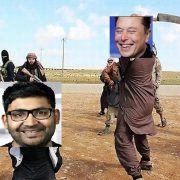

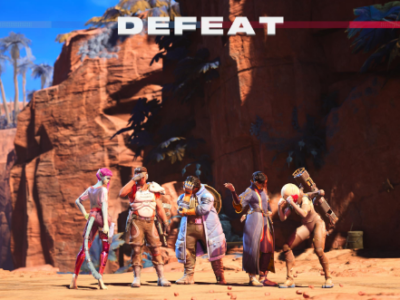
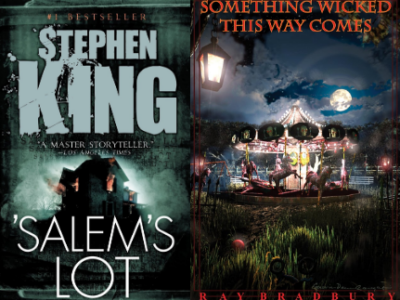









I once read the famously terrible Eye of Argon, and was able to laugh at how awful it was, in addition to some of its more ridiculous turns of phrase (just remembering the guy who gets kicked “in between the testicles” has me giggling as I write this). The passages of Malawhatsit you’ve proffered up are bad structurally, and have this pervasive air of pretense about them that destroy narrative flow. And I get the sense that this is being done on purpose, in some misguided attempt at style.
They Eye of Argon was written by a high school kid, so it’s low quality is understandable, perhaps even forgivable. What is Erikson’s excuse?
“Oh but you see you stupid pleb you just don’t understand. Erikson’s writing is intentionally bad, which makes it good. I spent 1,000 hours of my life reading the entire series and after my third reread I finally figured out what happened, kind of. This makes my identity be understanding Erikson, which makes me more intelligent than you.”
– MalazanFanRedditEnjoyer68
That’s basically the defense I’ve seen of him online. It’s Git Gud, but applied to fiction instead of video games.
Just wait until you get to the part where they play a mcfucking card game on a fancy stolen priest table, but the table is magical and makes the card game happen IN REAL LIFEEEEEEE.
I’m sorry, what? This is actually a thing that happens in the series?
My copy of Gardens of the moon had a preface in which Erikson makes clear that people who dislike the way he wrote the first book in the series are doo doo dumb dumbs, who have used up all of their mental capacities remembering the specification of Panasonic refrigerators.
Truly a series that ONLY true 105 iq lorefags can enjoy.
Why does none of this surprise me? Fans of the series all unanimously say that you won’t be able to know what’s going on the first time you read the books, no matter how hard you pay attention. But this isn’t like a mystery novel, where you think you know what’s going on, only for a twist to pull the rug out from under you. No, this is just you literally don’t know what’s happening and are expected to be fine with that.
That someone would write like this while being a pompous ass is all too predictable. Also, I found out it’s based on a D&D series, so I highly doubt this is anything better than schlock fiction, elevated to the heights of literature by midwits who are convinced that being hard to understand is synonymous with insightful.